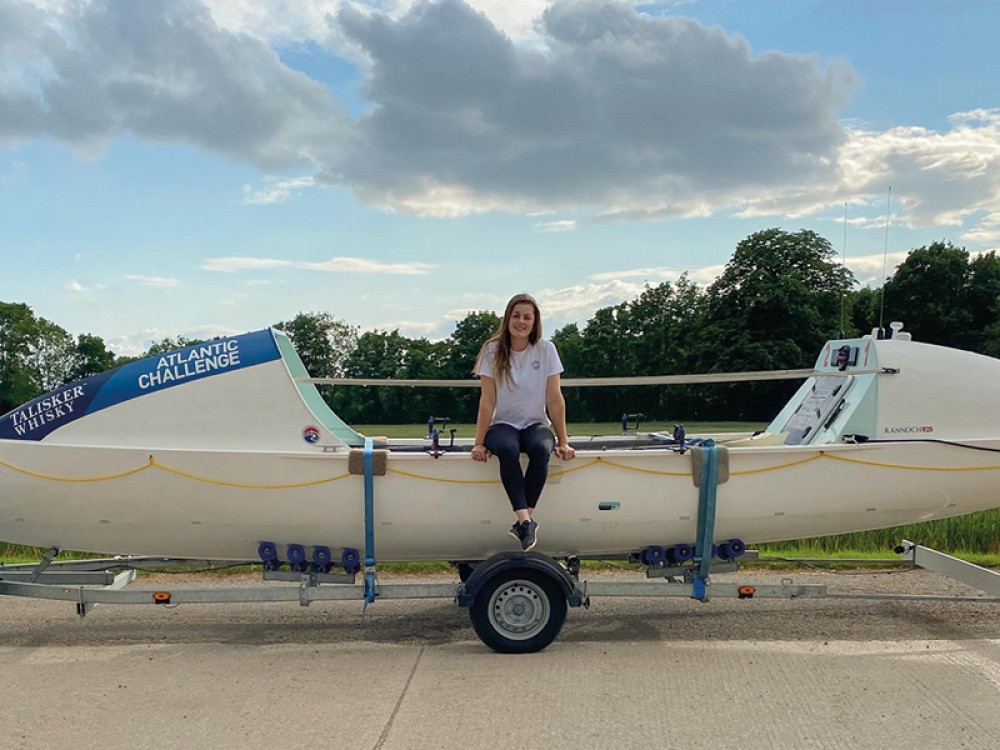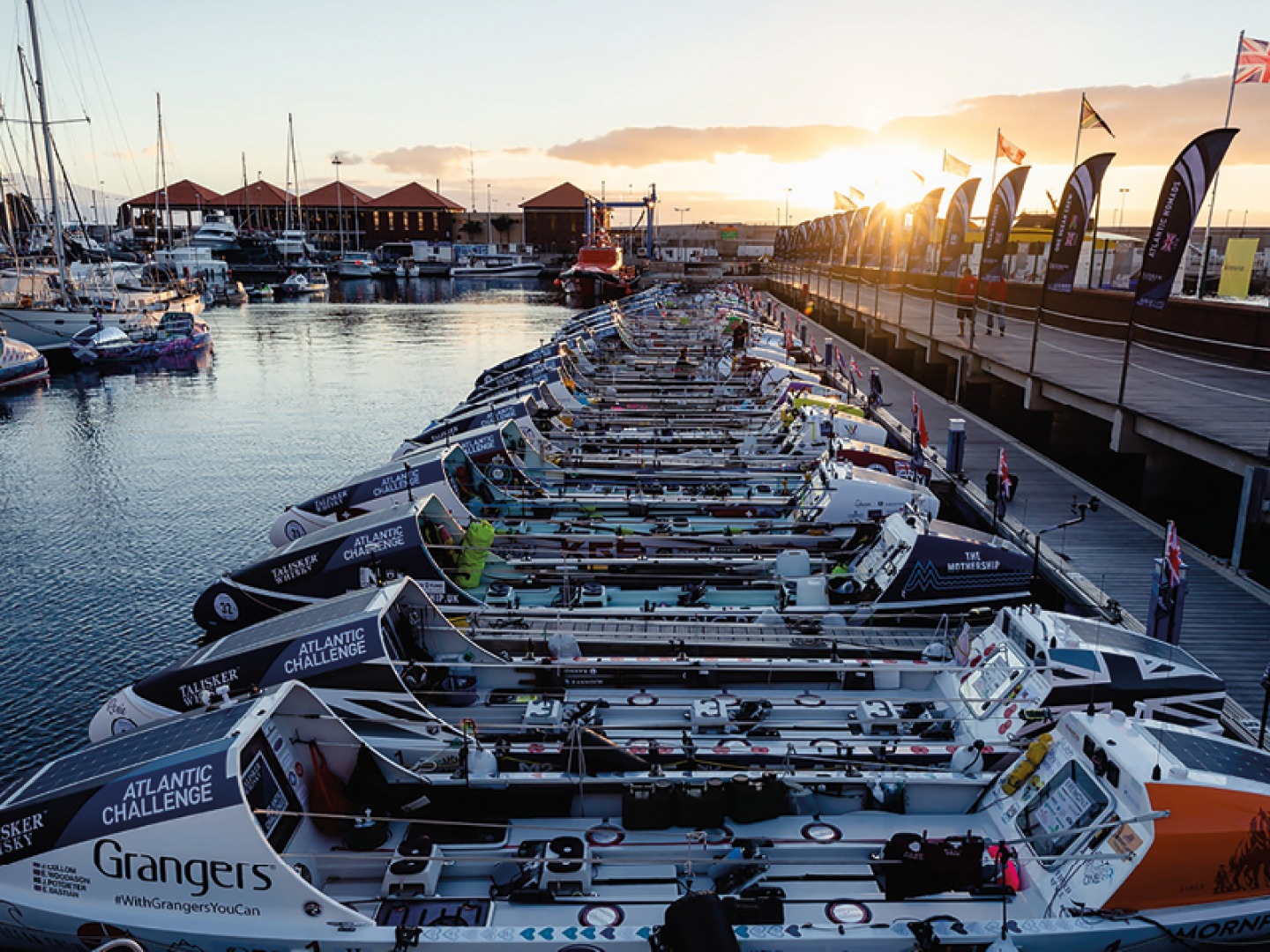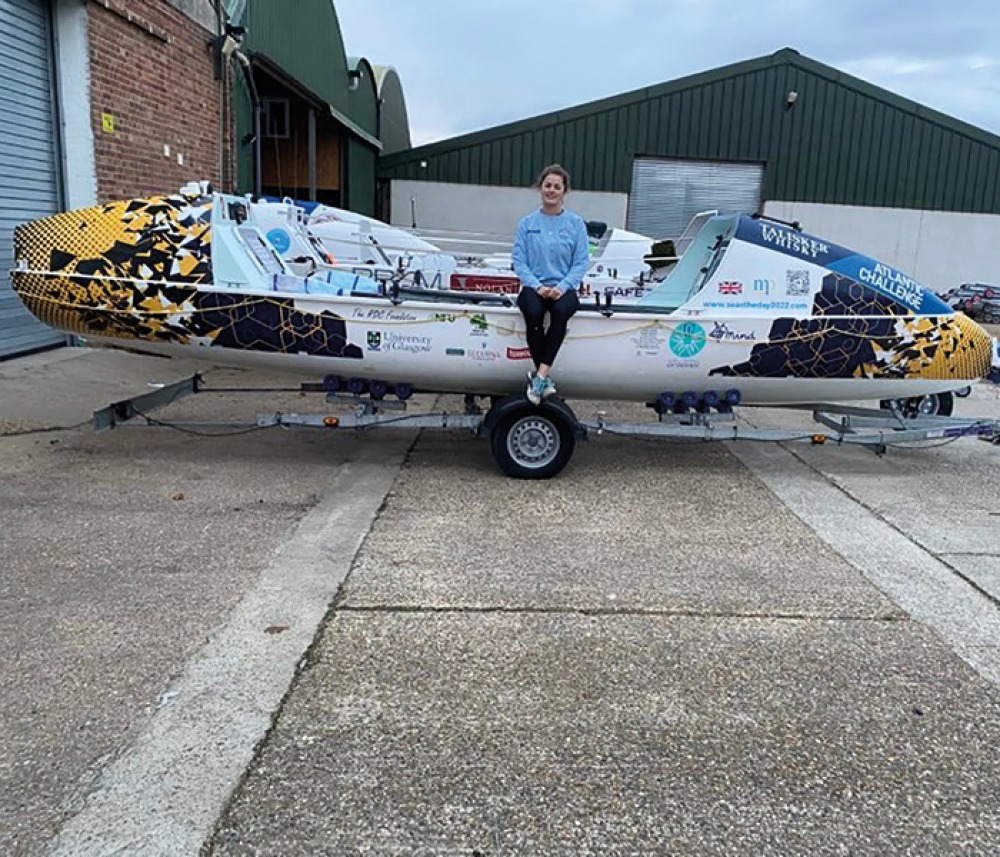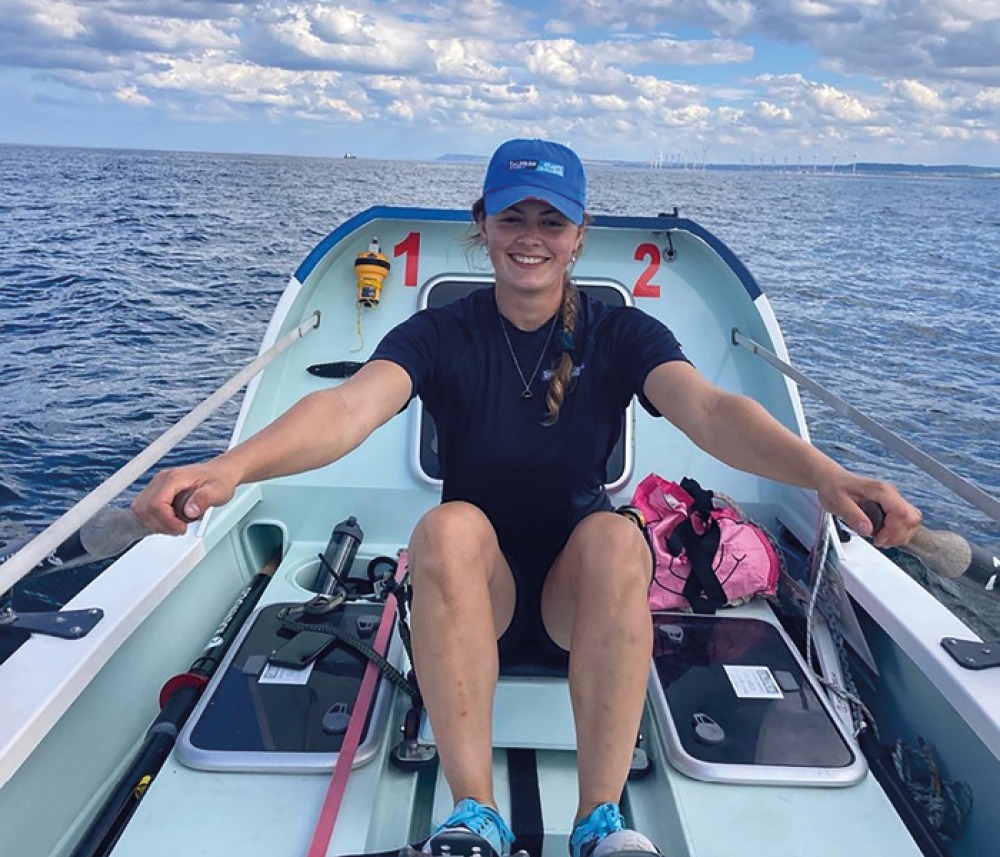Why this Incredible Yorkshire 23-Year-Old is Solo Rowing Across the Atlantic Ocean

Each year the Talisker Whisky Atlantic Challenge sees rowers from around the world row across the Atlantic Ocean in a bid to break world records. This year, Miriam Payne is taking on the challenge alone
Originally from Market Weighton in East Yorkshire, Miriam first took up rowing when she was studying at university. ‘I was at the University of Glasgow and was in my first year when I started rowing, and I’ve been river rowing for about four years now,’ she says. Within those four years Miriam built up a fearless attitude towards the sport and wanted to see just how much she could actually accomplish. ‘I wanted a bigger challenge,’ she explains. And in the rowing world, it doesn’t get much bigger than the Talisker Whisky Atlantic Challenge, a premier ocean rowing event which takes place every year.
‘It’s about 3,000 miles from La Gomera in the Canary Islands across to Antigua in the Caribbean,’ Miriam explains. The race began on 12th December and it’s up to each individual and crew which route they take across the ocean. ‘We have a start and a finish point and we all set off in a staggered start, and it’s up to you to figure out how to get to the other side the quickest,’ she continues. ‘A lot of teams do it as an adventure first and foremost and don’t want to race it, other teams are wanting to go out there and break or set records. It’s therefore up to you how you approach it, meaning you can do as much or as little [rowing a day] as you want.’ Miriam’s strategy will see her row 15 to 18 hours a day. ‘I’ve set shift patterns so it will maybe be something like three hours on one hour off, with a little longer block at night so I can get a chunk of better quality sleep – that will obviously have to be a bit variable depending on the weather and my tactics,’ she adds.

Each year the Talisker Whisky Atlantic Challenge sees teams come together from across the world, gathering in the race village San Sebastian in La Gomera, all with the same objective – to take on the challenge of rowing across the Atlantic Ocean. This year there are 43 boats entered into the race. ‘There are lots of different crews with two-, three- and four-man teams, however I’m a solo boat,’ Miriam says. Originally when she signed up to the event Miriam was part of a pair but unfortunately her rowing partner had to drop out in June for health reasons. Now she is taking on the race alone, battling up to 20-foot waves, sleep deprivation and salt sores, and putting her mind and her body through the ultimate test.
‘The aim is to do it unassisted, so I’ve got to be completely self-sufficient from day one which means taking all my food and all the equipment I might need, and being completely self-reliant,’ Miriam explains. ‘There are little red hatches on deck where that all goes – it doesn’t look like it would fit but surprisingly it does,’ she adds. Once the race starts she will not be able to accept any repairs, food or extra water. The challenge ultimately leaves rowers with their own thoughts, an expanse of the ocean and the challenge of getting from the start to the finish safely.

Miriam has been spending long days training both her mind and her body. ‘I did a lot of strength and conditioning and a lot of it was getting used to just long hours sat rowing. It’s not necessarily about cardiovascular fitness, but more about strength and conditioning and I guess building a bulletproof and resilient body for injury prevention,’ she explains. ‘A lot of the training has involved technical aspects as well and the main thing is spending time in the boat, knowing the equipment and knowing how things work. Say there is a problem with an airlock or something like that, you need to know how to fix it because if you can fix it really quickly then you’re only losing half an hour of rowing compared to maybe a whole day.
‘There is a huge amount of problem solving involved as well, and I guess with that there is a lot of mental training and thinking of scenarios and how you might deal with them, and being prepared for all outcomes. You have to think of different situations to test yourself mentally beforehand so you’re a bit more resilient out there.’
At just 23, Miriam has had to juggle her studies at university alongside her training. ‘When you sign up to something like this they tell you the hardest part is getting to the start line and I don’t think you realise how hard it’s actually going to be until you do it,’ she says. ‘Teams focus on corporate funding to get themselves to the start line, but when I signed up we were hit by Covid, then the cost of living crisis, so it has been the hardest thing I’ve ever done just to get there. I graduated last year in Physics with Astrophysics, so juggling training whilst I was trying to get a degree was pretty tough, but it’s been quite an incredible journey and I’ve definitely learnt a lot through it,’ she adds.
Read More: Meet Yorkshire's 58-Year-Old Powerlifter Who Just Won Commonwealth Gold
Despite all her preparation, Miriam knows there are certain unknown factors which could significantly impact her journey. ‘It’s so dependent on weather because if you’re on different latitudes to someone else you can get a bit of different wind or experience different weather, which can really affect it all. It’s not necessarily about how big or how strong you are, it’s tactics as well which play a part,’ she explains. ‘And one of first questions I get asked when people hear I’m racing in December is, “is it not going to be cold” but where it is [the Canary Islands and the Caribbean] being so far south means it’s going to be very warm. We also race in December to avoid hurricane season which is really over at that point, so the risk is a little less as well.’
Over the course of the challenge rowers are said to row an excess of 1.5 million oar strokes, burning more than 5,000 calories a day. Miriam has a pre-planned playlist full of sing-along songs and she has packed enough food to keep her motivated. ‘I’ll be having three main meals a day, most of which will be freeze-dried, and that will be around 2,500 calories. I’ll then supplement in about 1,800 calories in snacks so that’s where I’ll get my morale boost and get my chocolate in,’ she laughs. ‘I’ve also got little treats for milestones, for instance every 500 miles I’ve got a can of tinned fruit or fizzy pop or a chocolate orange, something different to keep me going.’

Read More:How to Help This Sunderland Singer Fight a Rare Brain Tumour
It’s not just the physical and mental challenge of crossing the Atlantic Ocean which Miriam has set out to conquer, she’s also raising funds for two brilliant local charities, Wellbeing of Women and Hull and East Yorkshire Mind. ‘It will make all the sleep deprivation, sea sickness and even just the stress in my preparation for a challenge like this completely worthwhile,’ she says. Both charities are close to Miriam’s heart and she is inspired by the pioneering work they do and the causes they champion, so 75 percent of the funds raised will be going to Wellbeing of Women and 25 percent to Hull and East Yorkshire Mind. ‘I’ve chosen Mind because, especially after the last few years of lockdowns, it has really emphasised the importance of taking care of our mental health. I am inspired by Mind’s mission to bring people together through social initiatives and sport, and asking for help should not be as difficult as rowing an ocean,’ she says. ‘Wellbeing of Women are dedicated to improving the health of women and babies through pioneering medical research. Women’s health is typically underfunded and a crucial area of research. When women are healthy, the health of society as a whole improves.’
The Talisker Whisky Atlantic Challenge is now well underway and after years of preparing for the race Miriam will be part way through her journey. ‘I’ve been asked why on earth I would want to do something like this so many times since I signed up and it’s very hard to give a one sentence answer. It’s something that has always appealed to me since I first heard about the Atlantic Challenge nearly six years ago. After a chance conversation with my former crew mate about the race, it seemed like too good an opportunity to pass up. Yes, it’s going to be hard, and I’m sure at times I will wonder why I am doing it, but not much interesting happens when you take the easy route.’







